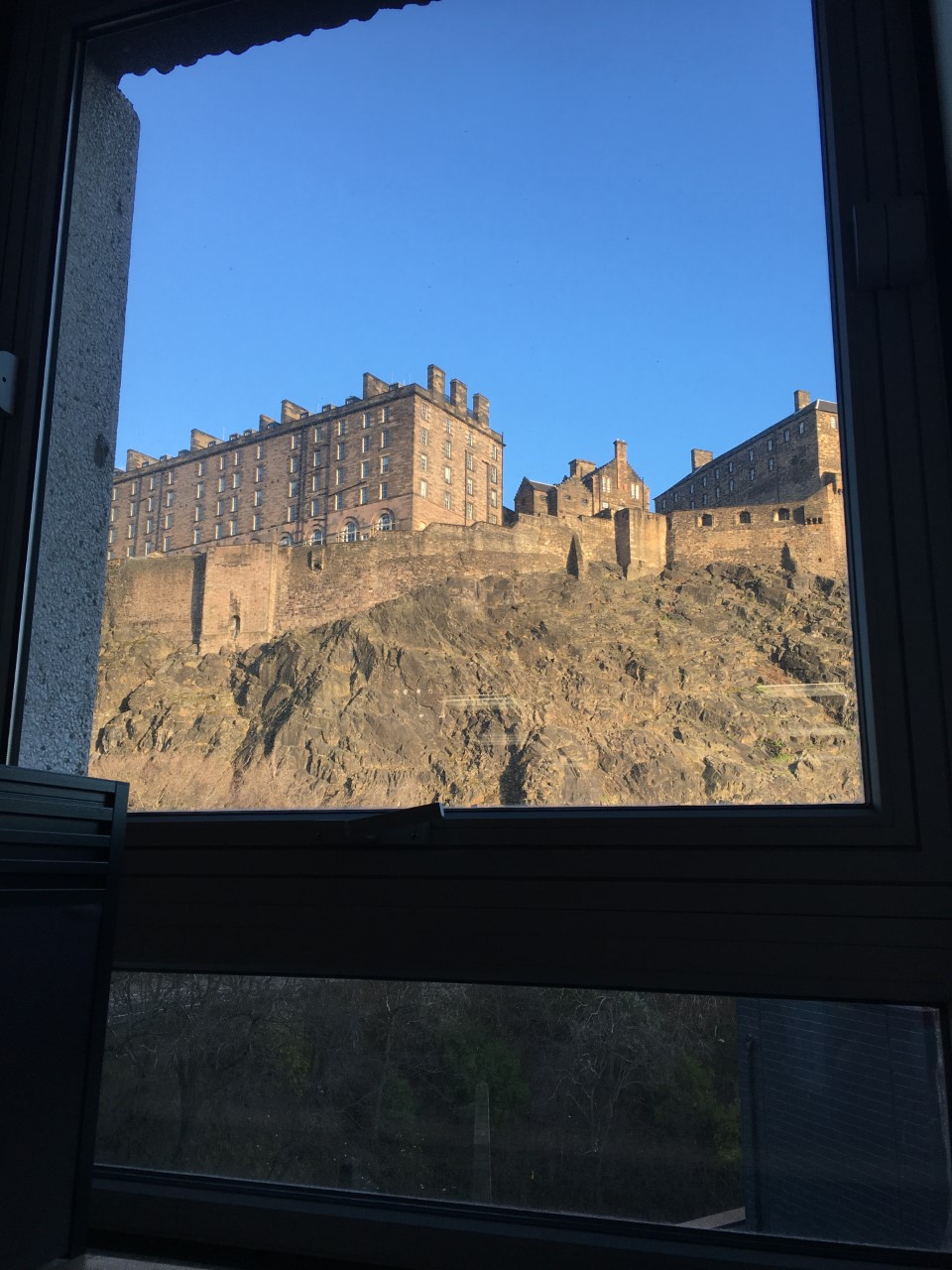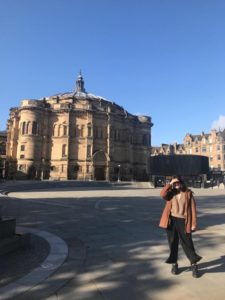Amanda is the Academic Blogging Intern for Learning, Teaching & Web. At the office she focuses on helping to create training material and strengthen the university’s academic blogging outreach and support. She’s passionate about politics, vegetarian food, and blogging (of course!).
Last time I wrote on this blog I was in the midst of summer where my mind was swimming with a mix of Blackboard Learn, Love Island, what fringe show I wanted to see next, and what I could do to fill up my weekends. It was a simpler time.
Now a lot has changed. Love Island is no longer on, the fringe is all but a distant memory, Learn is something I now use for my courses, and saddest of all my weekends tend to be spent in the library.
Despite the shift in my life I am still interning at Information Services, but this time with a new role and a new routine. I am now the Academic Blogging Intern and I only come into the office once a week as I am currently in the fourth and final year of my degree.

Unfortunately, I don’t have a lot of spare time anymore to watch mindless reality television, but what I do spend a very long amount of time constantly thinking about these days is International Relations. So, in order to maybe realise that my degree is doing more than just challenging (or sometimes torturing) me academically, I thought it would be great to see how it helps me to do the jobs I complete as Academic Blogging Intern. So, instead of the Lessons of Love Island, think of this as the Lessons of my International Relations degree (surprisingly this one is actually more of a stretch).
It’s all Politics
The saying that everything is politics is quite true. Even when you are primarily trying to update documentation on WordPress.

Within my degree I study the dynamics of power relations and try to understand what drives governments and people to make certain decisions. As a student I find myself in a unique position within the political community at the University of Edinburgh, I have both the power and privileges of being a staff member and a student. This leads me to make decisions based off my unique positioning and probably allows me to get away with the privilege of only working 7 hours a week.
In my position as student intern, I am responsible for creating policies that appeal to both staff and students. By policies I am mostly referring to training materials and while these may not seem like political documents per say, try to stick with me as I make these two things work. The thing I learned about politics or public policy is that you really can’t please everyone, but you really should try. So everything I write or make related to WordPress is trying to appeal to the University of Edinburgh community (whether staff or student). I try to make it accessible to the whole of the university community and try to represent as many diverse needs as possible. This same idea is basically what we hope all great politicians do, create policies and represent people who need their help the most.
The importance of independent learning
If there is any skill that my degree constantly reinforces it is independent learning. I currently only have five contact hours a week for my courses, essentially leaving me up to my own devices for the majority of the time. This requires a lot of independence, accountability, and creative thinking, especially when it comes to finding a way to read 80 pages the night before a lecture.
The same can be said for my work. I spend most of my days with a series of tasks to complete but the majority of the day is dedicated to how I want to spend it. I learn how to prioritise what different aspects of my work I need to get done and I approach tasks creatively and innovatively.
The thing about my degree I love is I have the time to really dive into aspects of my subject I am really fascinated by and the same goes for work, I have the opportunity and freedom to really explore the aspects of blogging that I find interesting and to explore the technological side behind it.
The World is Complex
A lot of time within political science is spent trying to unpack complex events into simple theoretical explanations. While this more simplistic understanding and unpacking can help to explain major world events, scarifying complexity can leave significant things outside of the analytical discussion. While one theory may help to explain Brexit from a certain perspective, the same theory may not be able to account for all the complications since. So regardless of how much we want to explain these things, they tend to be, and get even more, complicated the more you try to understand them.
This rings true for creating training material and using WordPress as well, as it becomes incredibly easy to get lost within the complexity of it all. Blogging is an art and it takes a wide variety of competing forms, some more simplistic than others. I could spend weeks trying to uncover all the various ways to blog and present said blogs on WordPress. Instead I try to make a balance between complexity and simplicity, I make training material that takes a more simplistic angle on how to use blogs.ed for academic purposes and sets people up with the basics. There is much more to explore and unpack but I leave that up to the user. The same could be said for great papers within political science, they don’t answer all the questions but they take a simplistic yet essential view when it comes to understanding an event and they leave the reader to go off and research the complexities from there.

Overall my degree does seem to be shaping me for the real world so that’s reassuring. I guess all that’s left now is to graduate (wish me luck).


